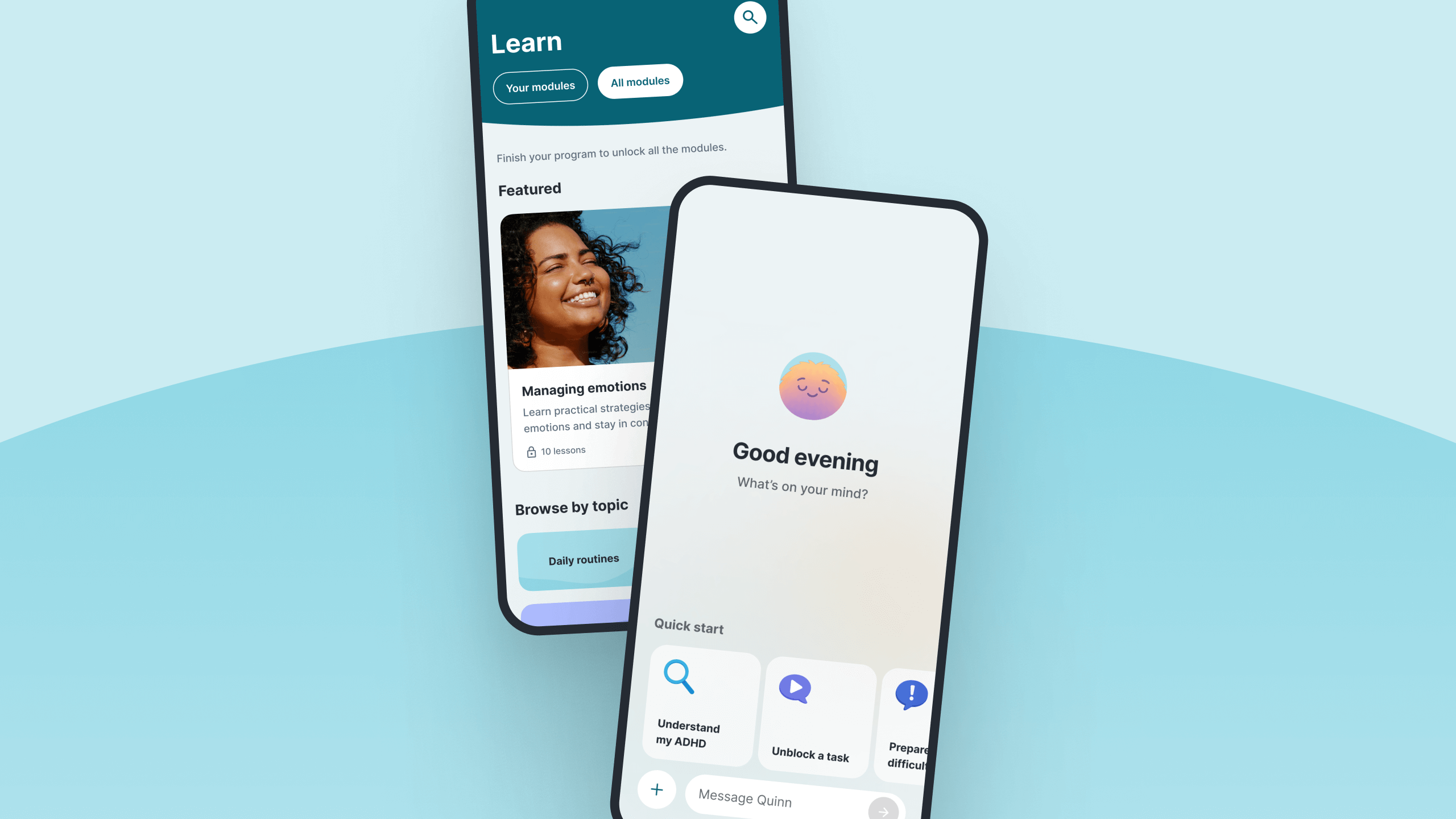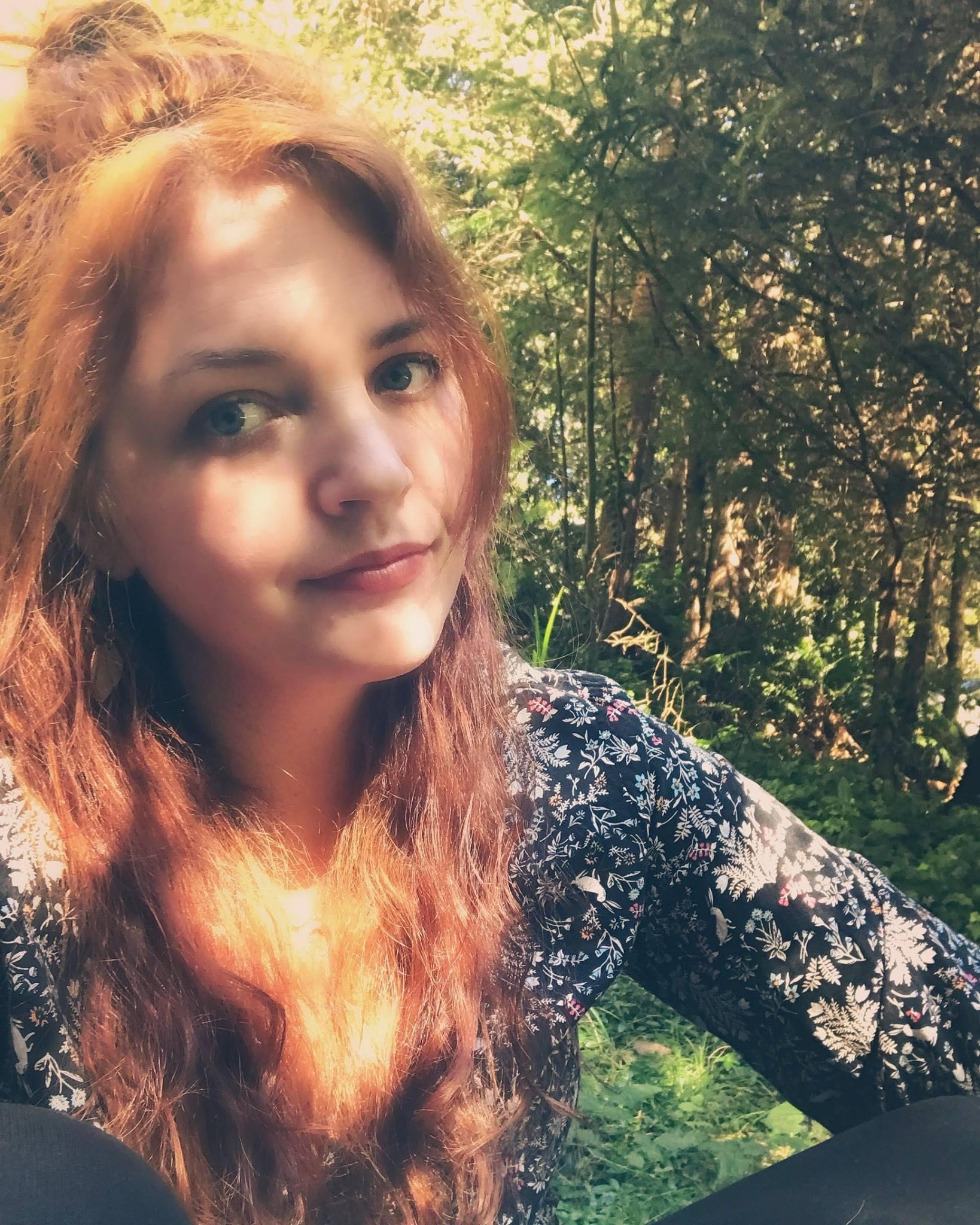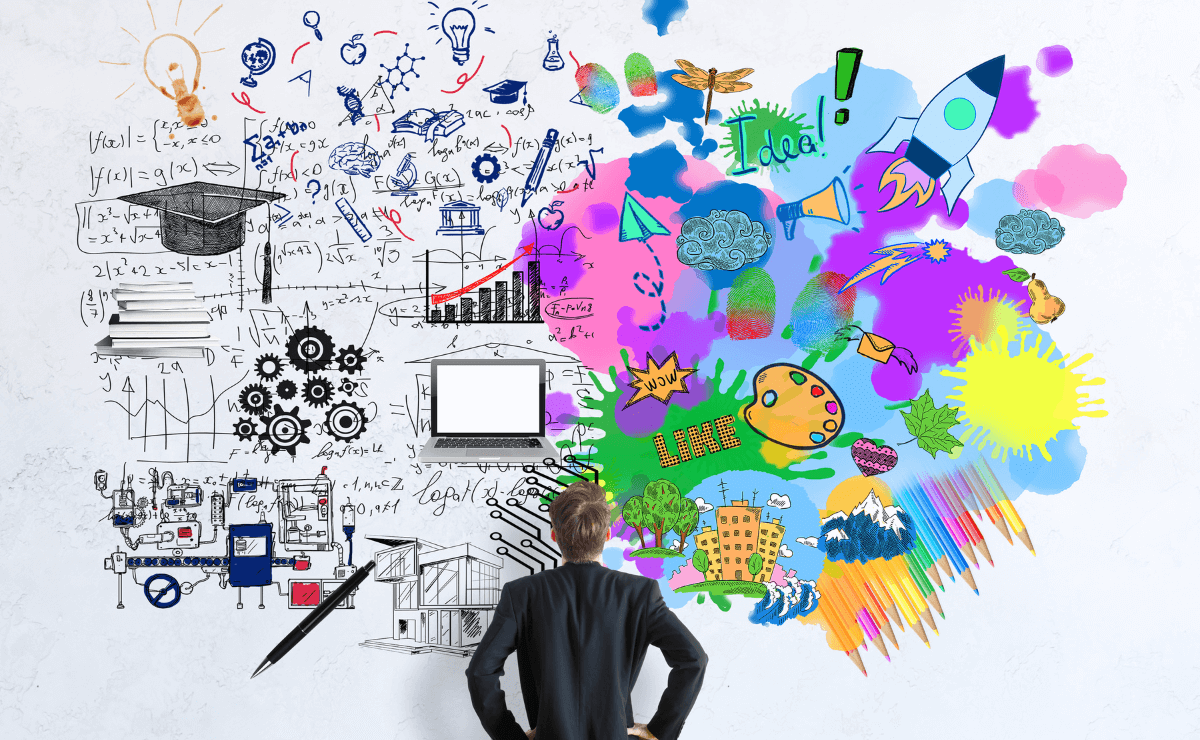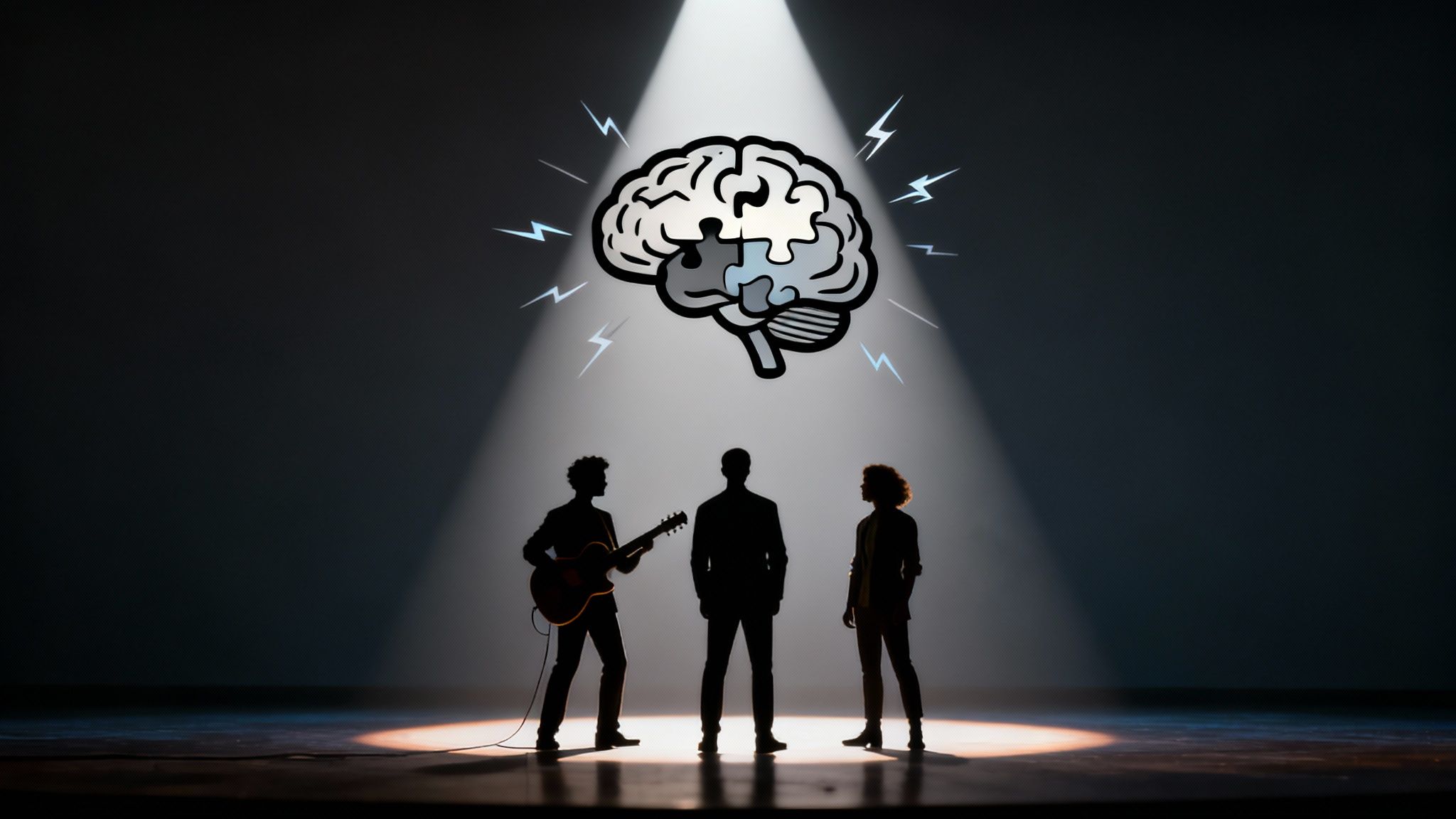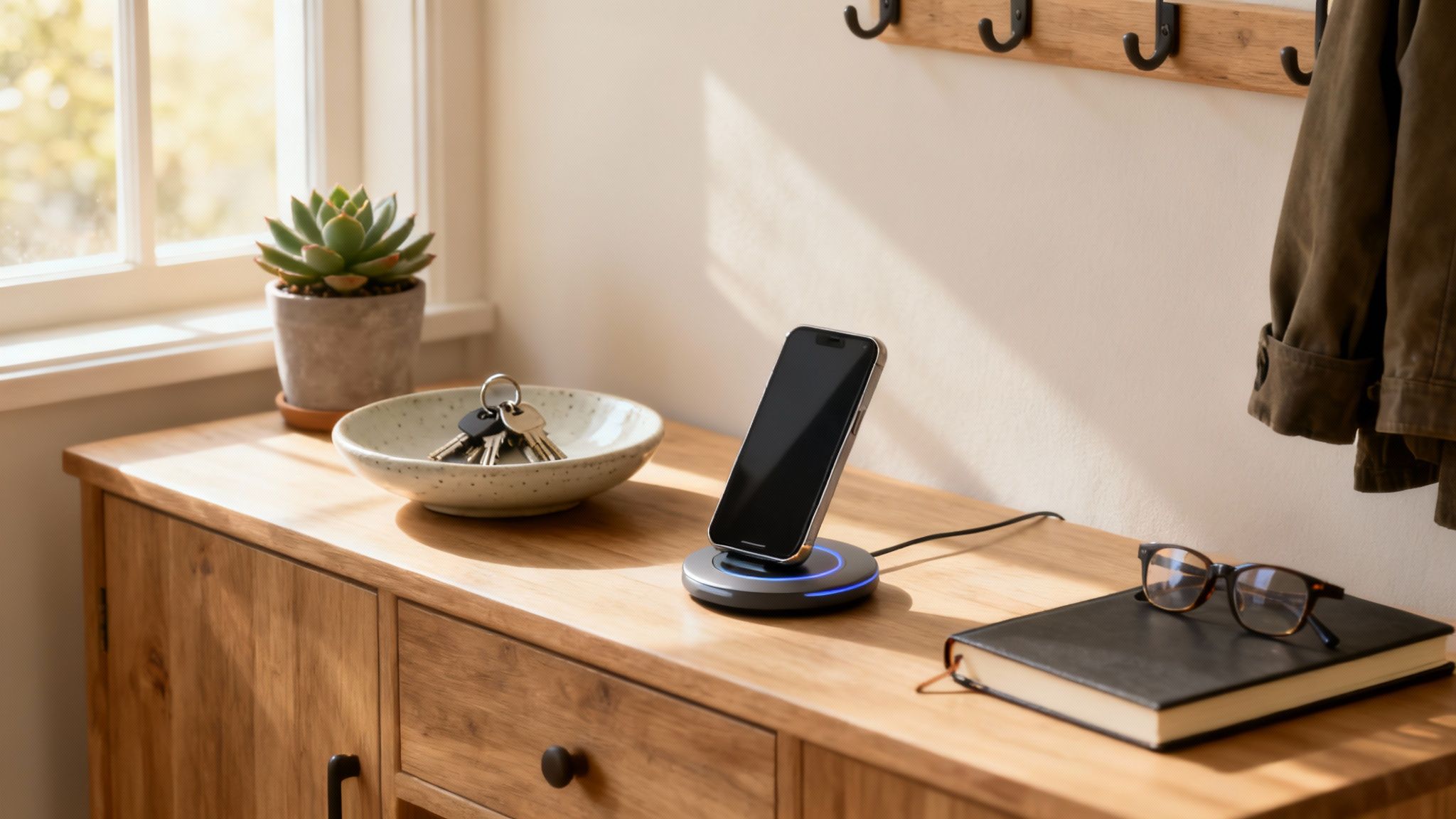Have you ever seen a meme or a video on the internet and sent it to a friend with the caption, “omg this is so me! LOL!” Well, that’s exactly what I did with a TikTok about ADHD. But the response I got was, “um yeah… that's actually just like you.”
*gulp*
Here’s how my diagnosis story goes…
Prologue: the ADHD hype on TikTok
Like many people, I discovered that I might have ADHD by hearing about other people’s experiences on TikTok. Now, I only use the app occasionally, but when I stitched a video about disordered eating habits being tied to the need for stimulation, it got over 100K views, 17K likes, and hundreds of comments of people relating to my story.
In the video, I explained how my constant snacking — that random urge to eat anything and everything — was related to my dopamine deficiency. People with ADHD are in this constant state of looking for stimulation.
For me, that stimulation came from food. I chalked it up to growing up in an Italian American household where we love to eat and eat a lot. But being Italian doesn’t give you an eating disorder! Even with all of these comments on my video pouring in, validating my experiences, I still questioned myself.
In the past, I'd never had enough concern from the countless therapists I brought this up to.
Chapter 1: Denial and doubt
Misdiagnoses
At first, I brushed off the idea.
If it wasn’t a problem to the professionals, it must not be a problem at all. Many marginalized people are misdiagnosed and not believed by doctors, so it’s not uncommon for people to doubt the validity of their diagnosis if and when it finally happens.
For most of my life, I received mixed diagnoses of depression, anxiety, bipolar, and even borderline personality disorder (BPD). To be perfectly honest, I think the only one they got right was anxiety. Unfortunately, this is the truth for so many people, especially cisgender girls and women.
The gender bias of ADHD
In fact, boys are diagnosed with ADHD at a higher rate than girls because boys tend to have an outward expression of the hyperactive type, while girls tend to display an internalized inattentive type. This internalization can lead to an increase in depression, self-harm, and self-destructive behaviors.
Though there is no “one size fits all” socialization of a single gender, being raised to believe I was a woman for most of my life absolutely impacted my mental health — and how my ADHD presents.
LGBTQ+ and ADHD
And I'm not alone in this.
Interestingly enough, transgender and gender non-conforming youth (especially transmasculine youth) are more likely to be diagnosed with ADHD and other mental health disorders than their cisgender counterparts.
There’s actually a huge overlap between neurodiversity and gender diversity. For me, the stress of coming to terms with my identity — and, no doubt, the struggles of living as a nonbinary trans man in a transphobic world — caused an increase in the severity of ADHD symptoms, as it limited my ability to cope with my life.
While my symptoms escalated, my ADHD remained mostly invisible.
That is, until I stitched that video.
Chapter 2: The “ah-ha!” moment
I’m not alone and neither are you
When I was finally able to process everything, I finally had that “ah-ha!” moment. So much of my life just… clicked. In many ways, my story became our story — because I wasn't alone anymore.
I and so many other ADHDers have been trying to navigate a neurotypical world as neurodivergent people without even knowing it: constantly feeling like we are behind, like we are struggling, like everyone around us knows what’s happening while we are left in the dark.
It can be debilitating.
Connecting the dots
Everything crashed into me all at once. I recognized that the rejection sensitivity I struggle with was rooted in my childhood and was ADHD-related. I realized the “mental breakdowns” I frequently had were from ADHD burnout.
Plus, all of the smaller things that I struggled with? I found out those were all related to ADHD, too!
These are things like: always losing my phone, keys, or glasses, feeling the need for peace and quiet while I’m working, or becoming overstimulated when I hear loud noises or I’m around overlapping voices.
Chapter 3: The highs and lows of ADHD diagnoses
That neurodivergent urge to info-dump
As I learned more about ADHD, so many emotions ran through me. It was exhilarating. I wanted to info-dump onto everyone I talked to about my discovery. It’s like a high. Looking back, my hyperfocus on ADHD probably looked a lot like those bipolar manic episodes my therapists believed I was going through…
Though, that high eventually comes down. This time, it came down hard.
Dealing with diagnosis grief
I became depressed very quickly. I felt a lot of resentment towards my parents for never getting me evaluated for ADHD. I was angry that my parents and my teachers didn’t notice the signs in me. I was grieving the help I never got when I was younger as I scrolled through the list of signs that were missed; signs that not a single person in my life picked up on.
Though I am still trying to heal from that pain, I’m feeling more optimistic about my future — because at the very least, at least I found my people.
Chapter 4: I found my people
Social media seems to be bringing communities of neurodiverse people together where we can share knowledge, tips, and support.
I’ve had the honor of learning from some incredible educators on TikTok, like Chamaya Moody, a Black autistic woman, actor, educator, and disabled advocate; Alex Hogg, LCSW who specializes in ADHD; and Catie Osborn, actor, ADHD educator and advocate, kinkster and Shakespeare nerd.
I could not be more thankful for these creators pushing their followers to empower themselves with knowledge. I feel so much more self-aware. I’m excited to learn more about myself and neurodiversity.
My best advice? Never underestimate the power of social media, self-diagnosis, and your own ability to take control of your mental health.
It might just change your life.

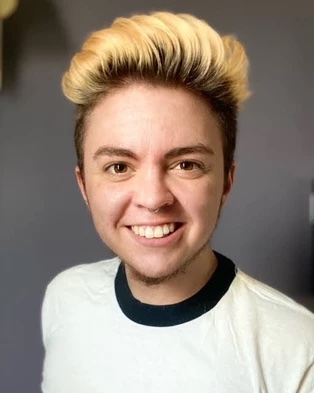
.jpeg)
